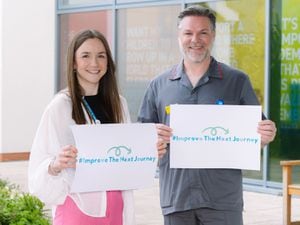Call for change over mental health worries for young people
A mental health lawyer, who works in Shropshire and the Welsh border has called for a change in the NHS mental health treatment criteria following the release of research data obtained by Pulse, a specialist publication for GPs.

John Lancaster, a senior solicitor-advocate with GHP Legal said the research shows that the provision of mental health services for young people is worse than it is for adults, and the situation is escalating.
His expertise and reputation on mental health and care and children law has seen him invited to speak on TV and radio.
Mr Lancaster said: “A significant proportion of the adult patients GHP Legal represents have had emerging mental health needs in their teenage years.
“Young people are more vulnerable, so that is the obvious time to put in significant services and help reduce the risk of them developing a mental illness that will endure into their adulthood. Yet it seems the complete opposite is happening.”
The Pulse survey of 935 GPs found nearly 30 per cent said the criteria for adolescent mental health services (CAMHS) referral appointments have become stricter in the past year despite referrals for children’s mental health services rising by up to 18 per cent between 2017-18 and 2018-19.
Mr Lancaster added: “We are rightly proud of the NHS and its boast to be free at the point of delivery.
"However, it is appalling and scandalous that, due to a clear lack of funding for the CAMHS services, a significant proportion of GPs now feel it necessary to suggest that treatment is sought on a private basis for children with mental health problems or, through a lack of funded choices, refer adolescent patients to websites so that they can ‘self-help’.
"I find it an extremely worrying practice to suggest to young people who are already suffering stress and anxiety that they should try to self-diagnose.
“None of this is a criticism of the dedicated and hard-working GPs and CAMHS teams. They provide the best care they can. The issue is funding for the CAMHS services and hence its criteria for access to its services.”





